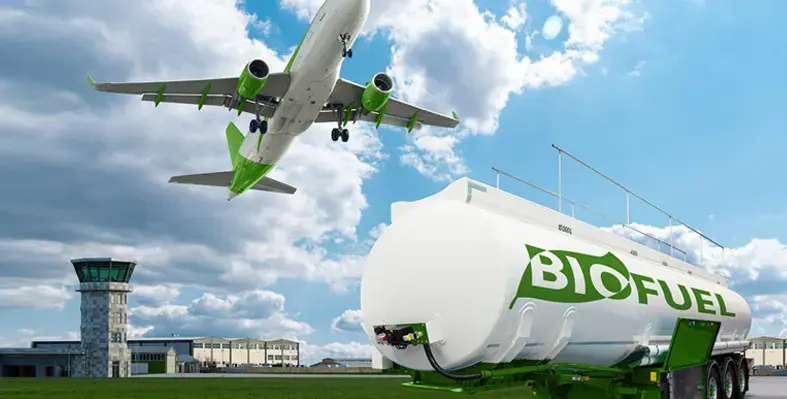Top aerospace companies are joining forces to evaluate the technical challenges of using 100% sustainable aviation fuel (SAF) in aircraft systems.
Aiming for a net-zero CO2 goal, Airbus, Boeing, Dassault Aviation, GE Aerospace, RTX’s Pratt & Whitney, Rolls-Royce, and Safran have established Work Group 13 (WG 13) to study the effects of 100% SAF on airplane systems.
With Boeing as the lead and Airbus as the deputy lead, the IAEG team members will coordinate testing efforts for 100% SAF. These efforts will be voluntary and for the use of WG 13 members. The test results will inform ASTM International as it creates new specifications for 100% SAF. The team will also collaborate with infrastructure stakeholders, such as fuel producers, airports, and airlines, to identify necessary steps to support the transition to 100% SAF.
“This collaboration will help prepare the broader aviation ecosystem for 100% SAF capabilities, as part of the aviation industry goal of achieving net zero CO2 emissions by 2050,” said Ryan Faucett, Boeing vice president of environmental sustainability and IAEG board member. “We will share our findings from our SAF compatibility and ground-breaking jet reference fluids research and continue to collaborate with this Work Group to support a more sustainable aviation future, together.”
“Achieving up to 100% SAF capability for commercial and military aircraft fleets will require a high level of industry collaboration,” said Dr. Bruno Costes, Airbus senior director of institutional relations and standardisation and IAEG chair. “Airbus will bring its knowledge and experience from years of 100% SAF demonstration flights, coupled with our technical expertise in developing new fuel standards. SAF will be a key enabler for the decarbonisation of the sector by 2050.”








